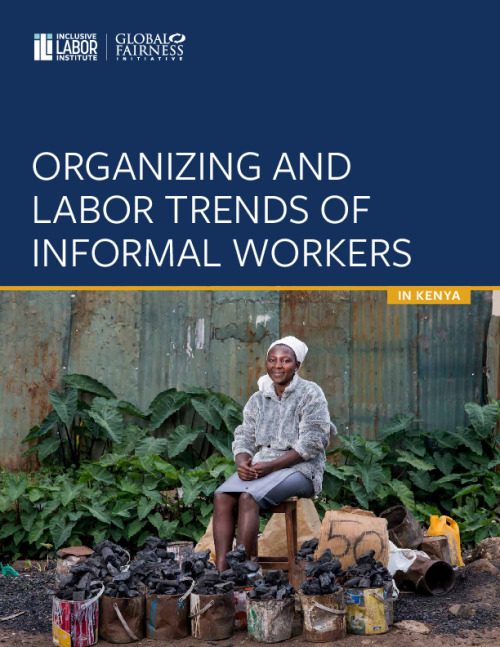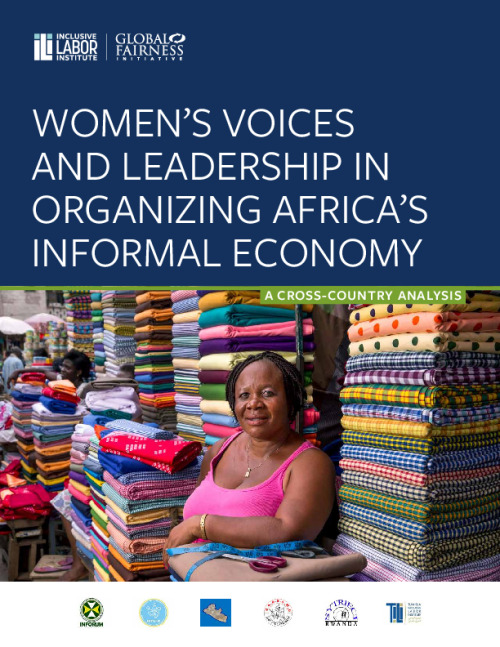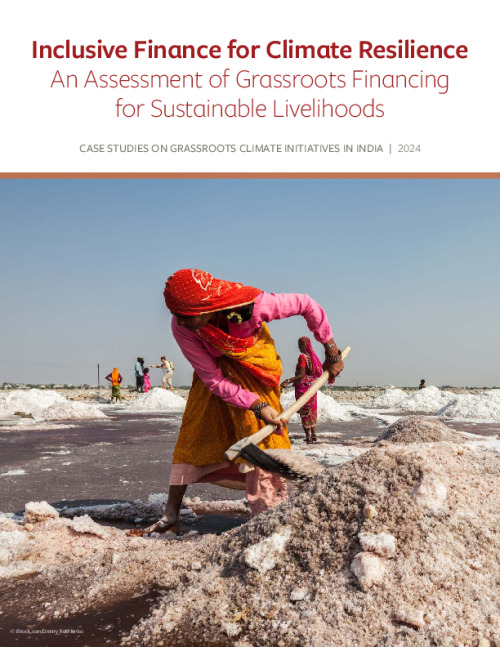ILI Study: Organizing and Labor Trends of Informal Workers in Kenya
Publication Date
Summary
The International Labour Organization (ILO) estimates that approximately 62% of the global employed population operates within the informal economy.1 However, this figure is even higher in low-income countries, where informal employment may account up to 90% of total employment. In Kenya specifically, the informal sector provides employment to 83% of the total employment (16 million jobs), contributing an estimated32.8% to the GDP (World Economics, 2024). Recognizing the importance of the informal sector, the government of Kenya has implemented various policy measures, initiatives,and strategies to support it. These efforts include improving access to finance, and fostering collaboration among government agencies, non-governmental organizations, and the private sector to support informal businesses.
The objective of this study was to determine the reasons why informal workers are unable or unwilling to join unions and what are the opportunities to increase union membership and participation. The research study employed both qualitative and quantitative methods adopting participatory and consultative approaches. The study was developed and conducted through collaboration between GFI, SEWA, DRL, AUKMW and BOTTAX Kenya, and incorporated grassroot enumerators in designing and execution of the study.
The study established the following as barriers preventing informal sector workers from joining unions include; First, is the lack of awareness among informal workers on the registration process, the role of trade unions, and the benefits associated with union membership. Secondly is the inconsistency in income hampering workers’ ability to commit financially to union membership. Thirdly is the poor governance strategies within the unions, making them less appealing or effective for potential members. Lastly, is the presence of selfish interests among union officials further preventing informal workers from seeking union representation.
This report makes the following recommendations: First, trade unions must prioritize awareness campaigns among informal workers to highlight the benefits of union membership. Secondly, trade unions should increase advocacy around fair wages and improve working conditions ensuring compliance with minimum wage requirements and legally mandated work protections. Third, a mechanism should be established by trade unions to certify individuals who qualify through on-the-job training. Lastly, trade unions should apply a gender lens into the design and Implementation of their work to ensure that the needs and inputs of women, are mainstreamed into their operations.
The objective of this study was to determine the reasons why informal workers are unable or unwilling to join unions and what are the opportunities to increase union membership and participation. The research study employed both qualitative and quantitative methods adopting participatory and consultative approaches. The study was developed and conducted through collaboration between GFI, SEWA, DRL, AUKMW and BOTTAX Kenya, and incorporated grassroot enumerators in designing and execution of the study.
The study established the following as barriers preventing informal sector workers from joining unions include; First, is the lack of awareness among informal workers on the registration process, the role of trade unions, and the benefits associated with union membership. Secondly is the inconsistency in income hampering workers’ ability to commit financially to union membership. Thirdly is the poor governance strategies within the unions, making them less appealing or effective for potential members. Lastly, is the presence of selfish interests among union officials further preventing informal workers from seeking union representation.
This report makes the following recommendations: First, trade unions must prioritize awareness campaigns among informal workers to highlight the benefits of union membership. Secondly, trade unions should increase advocacy around fair wages and improve working conditions ensuring compliance with minimum wage requirements and legally mandated work protections. Third, a mechanism should be established by trade unions to certify individuals who qualify through on-the-job training. Lastly, trade unions should apply a gender lens into the design and Implementation of their work to ensure that the needs and inputs of women, are mainstreamed into their operations.
Language
Partner
Sector
Country
Kenya



